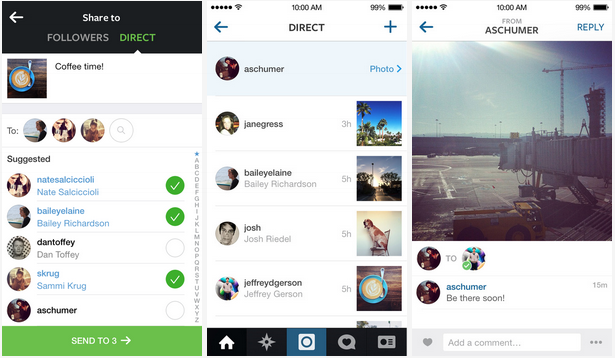
Top 5 Questions from Parents
Instagram is one of lots of social networks apps for smart devices and no single service, app or tool covers all digital social activities or perhaps a single classification, however research reveals that socializing face-to-face is still the main event for teens.
Bear in mind that your kids can be on Instagram even if they're not on Instagram. Sounds not likely, but not in social networks. Even if a parent prohibits all social networks, his or her child's photo and other info can be published by good friends via their accounts. And for teens, there's the worry of missing out that even has its own acronym, "FOMO." While not all teenagers require to or necessarily even want to use social networks apps, for many it's ingrained into their social lives. Obviously, moms and dads ought to help their teenager make great options, but prohibiting social networks might not be the best service.
There are lots of alternatives for digital mingling, with brand-new ones appearing on different platforms all the time. Some do a better task of securing privacy and safety than others, and moms and dads can't potentially be on top of all of them. We likewise can't always understand the context of images, videos and comments our kids belong to in social media. That's why it's essential to keep the lines of communication with your kids as open as possible and interact to figure out what's appropriate for them, in terms of security, privacy, track record and time management. It usually just works much better to talk with our kids about their favorite tools-- with genuine interest, not fear-- because they're most likely to come to you if they ever require assistance.
1. Why do teenagers enjoy Instagram?
Because they enjoy consuming and developing media, sharing it and mingling, and Instagram makes all that doable in a basic, attractive way. Teens also like the capability to produce "stories" that disappear after 24 hours.
2. Does Instagram have a minimum age?
Yes, it's 13, in compliance with the Children's Online Privacy Protection Act. Instagram does not ask users to specify their age, and, regardless of the rules, there are lots of more youthful kids who use the service, typically with their parents' authorization. Instagram will delete minor accounts if they're informed and can't validate that the user is over 13.
3. What are the risks in using Instagram?
There's nothing inherently harmful about Instagram, the main things moms and dads fret about are common of all social media: indicate behavior among peers, improper images or videos that can injure a teen's reputation or draw in the wrong kind of attention, overuse, and of course, Learn This Here Now privacy. Parents are likewise concerned that individuals their kids don't understand can connect to them directly. Kids can learn to minimize the possibility of these dangers, which is why we wrote this guide.
4. Are there tools to assist restrict how much time your kids spend on Instagram?
Instagram now offers tools to help users of any age better handle the time they spend utilizing the app. That consists of an activity dashboard, a day-to-day pointer and enhanced ways to restrict notifications. As we discuss later on in the guide, you can access these tools from Instagram's settings menu.
5. Should my teenager's profile be personal?
We recommend teens have a private account so that only fans they approve can see their posts in the Photos tab of Search & Explore or on hashtag or place pages. (Accounts are public by default.) A more public existence might be suitable for some older teenagers, such as those who are promoting for a cause, raising money for charity or participating in discussions about sports, concerns or hobbies. If you think your older teen may take advantage of a public account, make certain to speak with them about how to prevent publishing View Publisher Site anything that might threaten their security, individual privacy or credibility. It's important to note that Instagram's privacy settings don't follow if the posts are shared to Facebook, Twitter or Tumblr. Rather, the personal privacy settings for those services will apply.